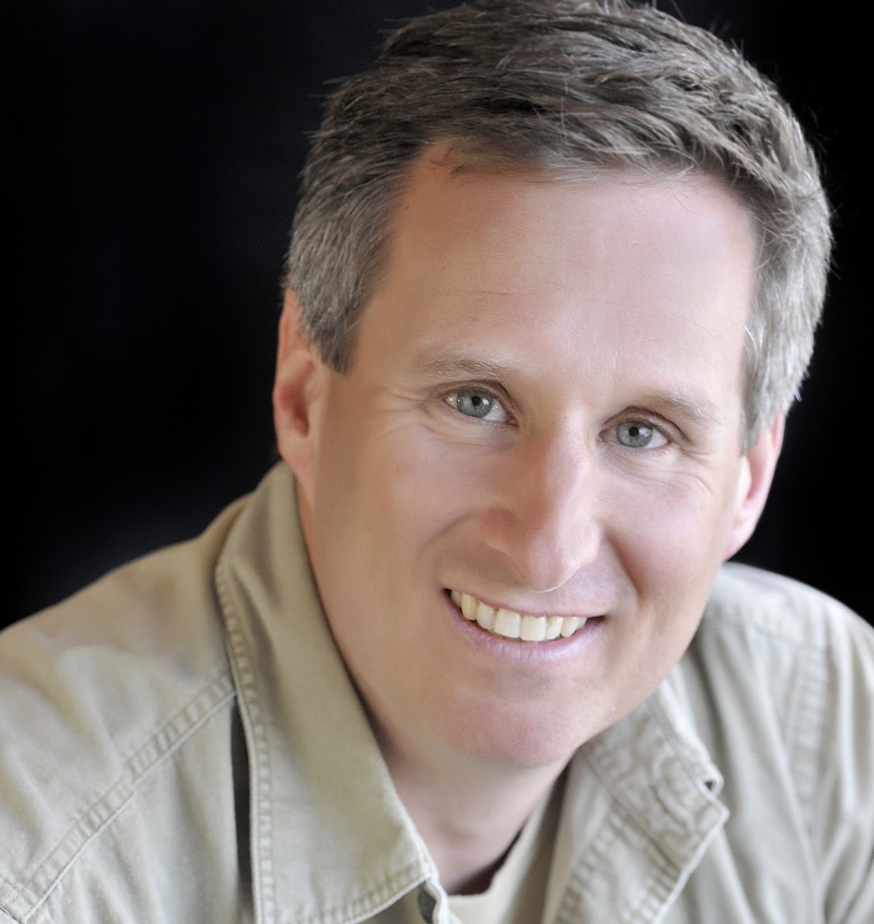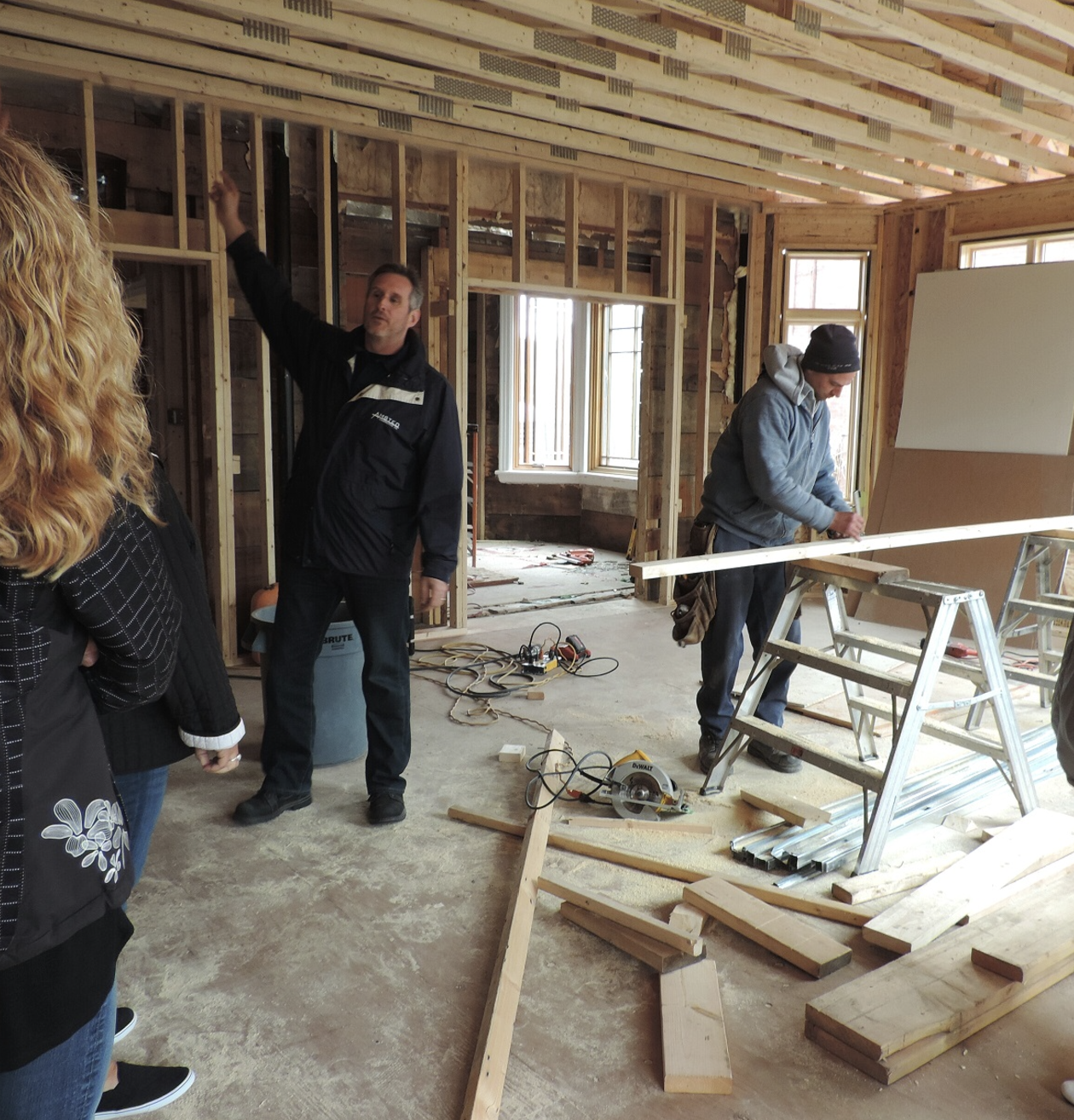Teigan Labor Fights for Canada’s Incredible Wilderness
Tuesday, February 24, 2026 / Online
"Lake Superior was definitely a big pull for me," says Teigan Labor of her decision to come to Lakehead University.
This recent grad (HBOR/BSc'24) is now the communications manager of the Nova Scotia chapter of the Canadian Parks and Wilderness Society (CPAWS-NS).
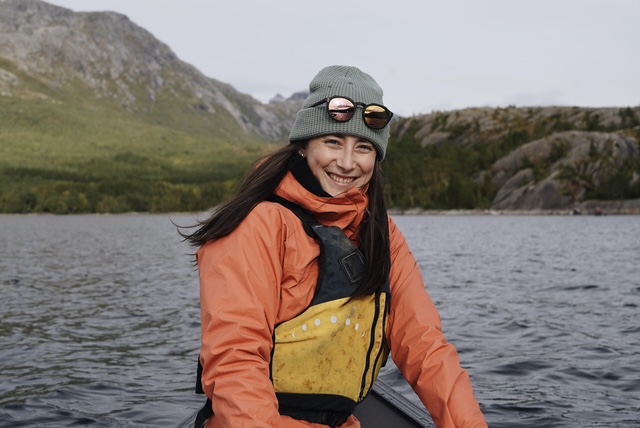
Above, Teigan canoeing in Norway during the semester she spent at Nord University. "Northern Norway was a fantastic place to go as someone studying outdoor recreation and natural sciences because of the stunning landscape and the culture of friluftsliv, which translates to 'open-air life.'"
Choosing the university surrounded by boreal forest and a vast lake proved to be a good move for Teigan, who grew up exploring the wild waters and shores of Nova Scotia.
She was also encouraged by a glowing endorsement from her dad, Peter Labor.
He graduated from Lakehead in 1989 with Honours Bachelor of Outdoor Recreation and Bachelor of Science degrees, and went on to become the Government of Nova Scotia's director of protected areas and ecosystems.
"Growing up, my dad told me a lot of stories about Lakehead, especially his outdoor rec adventures—like joining the Mackenzie Expedition canoe trip across Canada," Teigan says.
"I saw how his time at Lakehead led him to an environmentally focused career and shaped him into someone I looked up to."
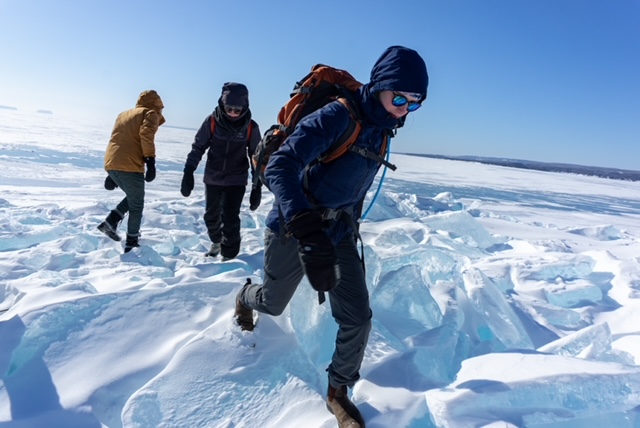
"I chose Lakehead for its community-oriented mindset—smaller classes, knowing your profs—and the opportunity to do a double degree in Outdoor Recreation, Parks and Tourism and Natural Sciences," Teigan says. "This was unique from the other universities I was considering."
A Sailing Adventure and Studying Among Norway's Glaciers
Teigan packed a lot of living into her time at Lakehead.
She began a month-long stint as an environmental educator in 2022 after attending a campus presentation by Sea Change Expeditions, an educational organization.
This entailed living aboard a 40-foot sailboat on Lake Superior and sailing to schools around the lake. She talked to kids about issues affecting the lake, like climate change, microplastics, and invasive species.
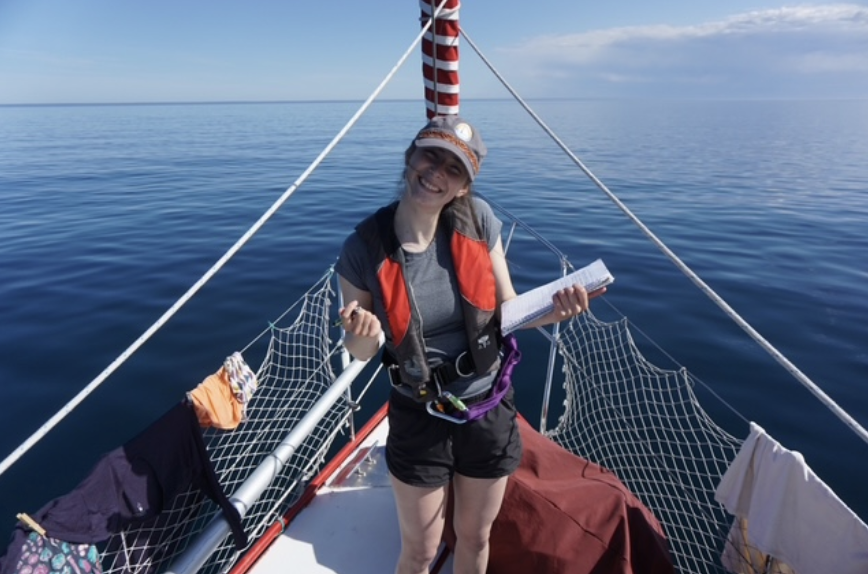 While sailing around Lake Superior in 2022, Teigan recorded water-clarity data as well as spoke to schoolchildren. "The schools we stopped at included Knife River and others on the North shore," she says. "We also stopped in Houghton, Michigan and Washburn, Wisconsin."
While sailing around Lake Superior in 2022, Teigan recorded water-clarity data as well as spoke to schoolchildren. "The schools we stopped at included Knife River and others on the North shore," she says. "We also stopped in Houghton, Michigan and Washburn, Wisconsin."
In her final year at Lakehead, she spent a semester at Nord University in Bodø, Norway, as part of Lakehead's North2North exchange program. "It was really eye opening, and one of the best decisions I made as a student," she says.
"I got to climb a glacier and learn how glaciers are being impacted by global warming—while standing RIGHT THERE in person."
The Pull of the Magnificent Atlantic Ocean
As an undergrad, Teigan worked as a summer student with CPAWS-NS, which works to conserve Canada's natural ecosystems.
She springboarded into a full-time role as CPAWS communications manager (she also does videography work for the organization) right after graduating from Lakehead.
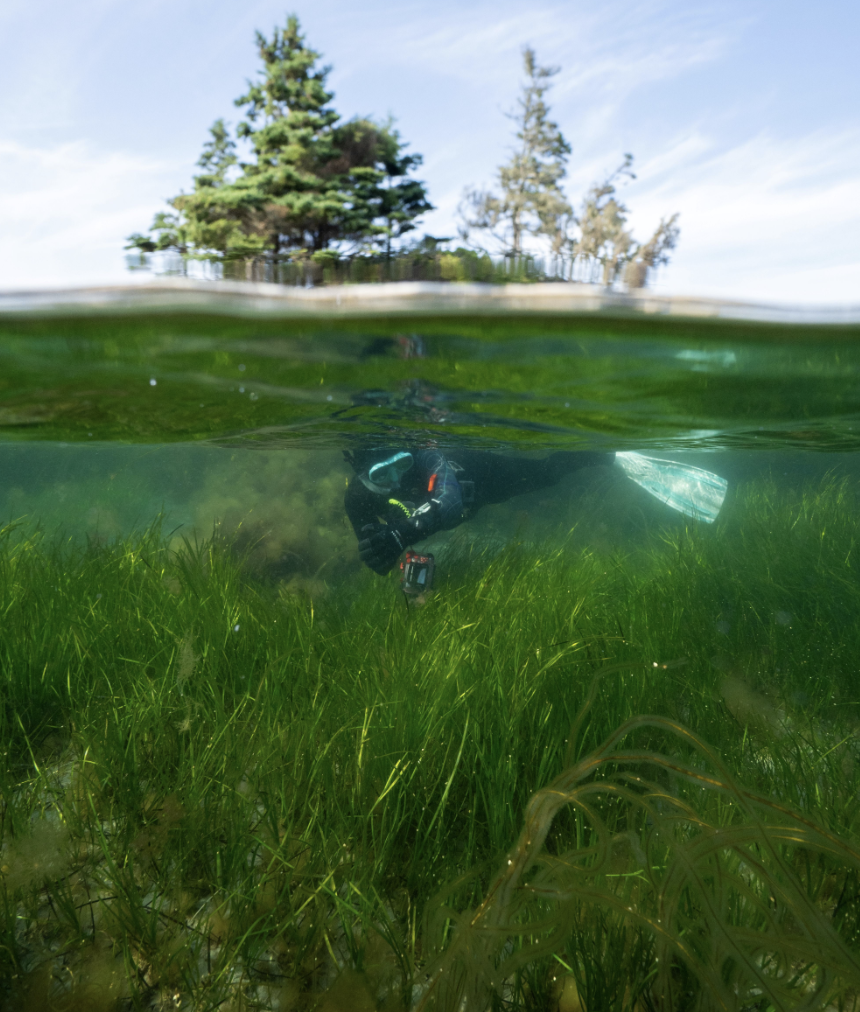 Teigan during a conservation freedive among eelgrass. "Eelgrass meadows provide shelter and nursery habitats for juvenile fish, and other marine species," she says. "They also store and sequester carbon, reduce coastal erosion, and much more." Photo Credit: CPAWS-NS/Teigan Labor
Teigan during a conservation freedive among eelgrass. "Eelgrass meadows provide shelter and nursery habitats for juvenile fish, and other marine species," she says. "They also store and sequester carbon, reduce coastal erosion, and much more." Photo Credit: CPAWS-NS/Teigan Labor
Her path to this position was helped by her activities both in and out of class.
She was the Lakehead Outdoor Recreation Parks & Tourism Student Society information coordinator and a videographer of outdoor rec-related content used in Lakehead's digital recruitment campaigns.
"Outdoor rec is just such an incredible program because you get a lot of different perspectives, including a really strong Indigenous-led perspective," she notes.
"I got a strong grasp of the leadership and group dynamics side of outdoor rec, such as guiding people in the outdoors, and learning how to assess risk and liability for participants."
Another bonus was earning certifications for diverse skills as part of her coursework.
On a Mission to Conserve Nova Scotia's Unique Marine Life
Today, Teigan has a career that gives her a sense of meaning and purpose.
"There are islands all up and down the coast of Nova Scotia, so one of the coolest projects I've been working on lately is a documentary about those islands and their remarkable biodiversity," she says.
Part of her efforts include conservation freediving, which allows her to document marine environments with underwater photos and videos.
Teigan on a CPAWS conservation freedive at Sandy Cove, Terence Bay, in Nova Scotia. "We don't use the snorkel that much because we spend most of our time diving deeper than the surface!" Photo Credit: CPAWS-NS/Teighan Labor
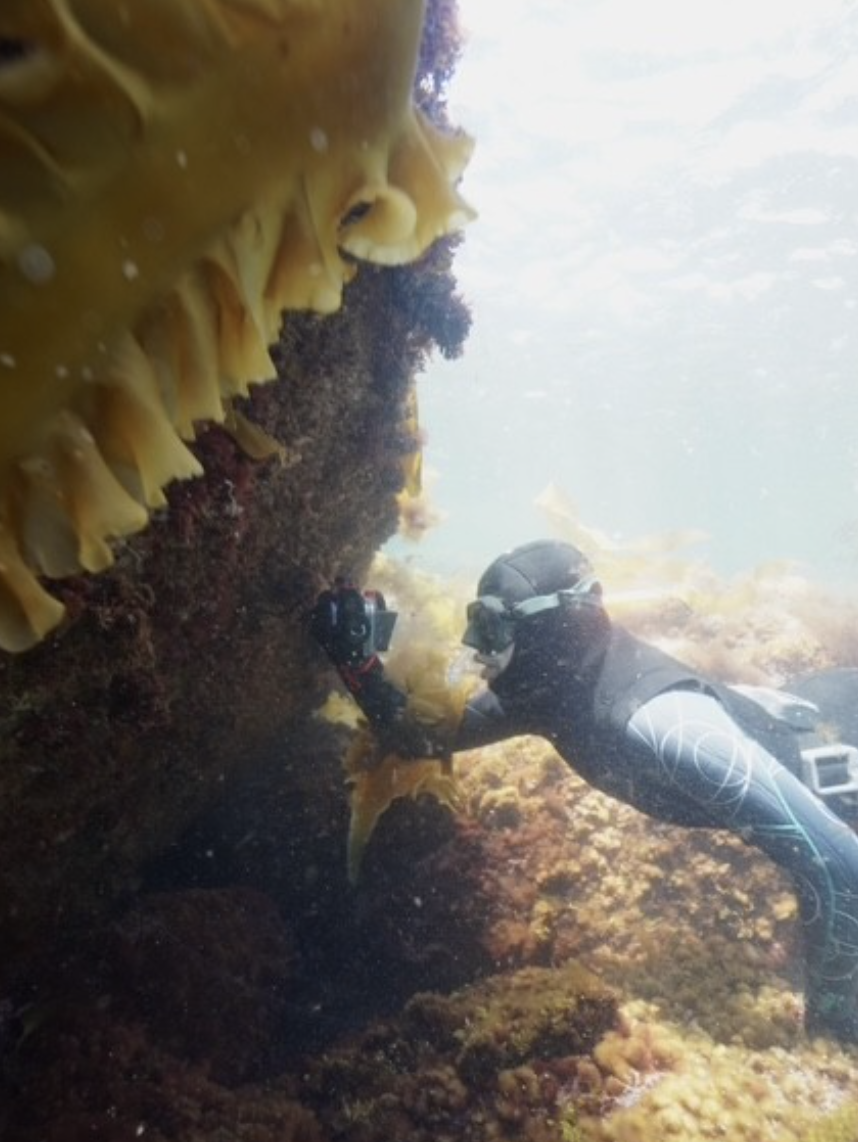
"Conservation freediving looks a lot like spearfishing, but we replace the spear with a camera and strap a slate to our arms so that we can take down observations." Unlike scuba diving, freedivers don't use oxygen tanks.
Her department focuses on science communication to bring the public and communities into conversations. The goal is to inspire people to care about conservation and to talk to their policymakers about protecting the environment.
"I believe as humans we have a responsibility to take care of nature," Teigan says.
"I grew up canoeing, hiking, and playing in Nova Scotia's parks, protected areas, and coastlines. I want future generations to have the same opportunity."


 “I was feeling overwhelmed and rushed, and I said, ‘Come on, let’s go,’ and he started to cry. He wanted to show me this incredible picture of a rainbow and hearts that he’d drawn for me on the chalkboard.
“I was feeling overwhelmed and rushed, and I said, ‘Come on, let’s go,’ and he started to cry. He wanted to show me this incredible picture of a rainbow and hearts that he’d drawn for me on the chalkboard.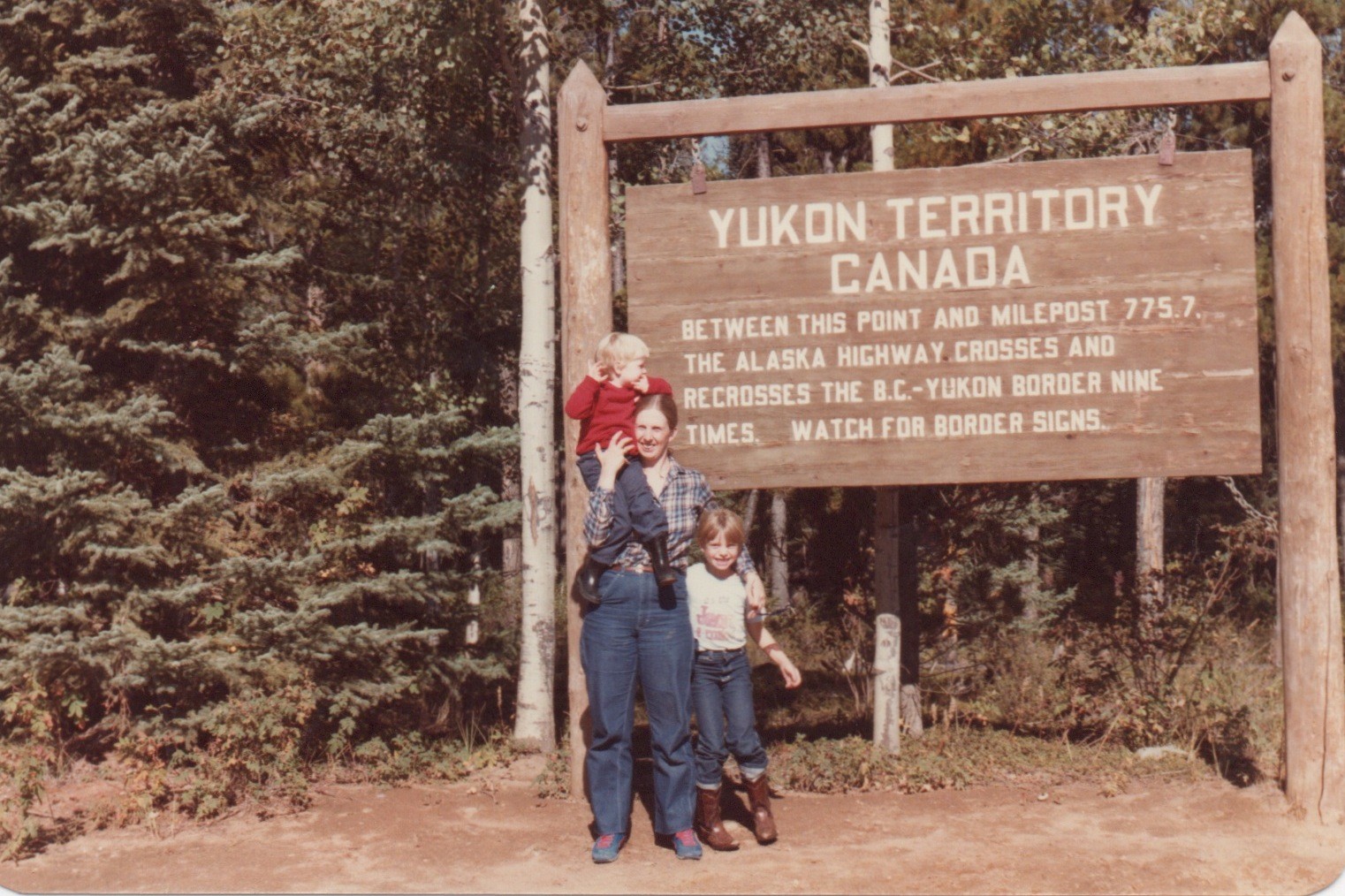
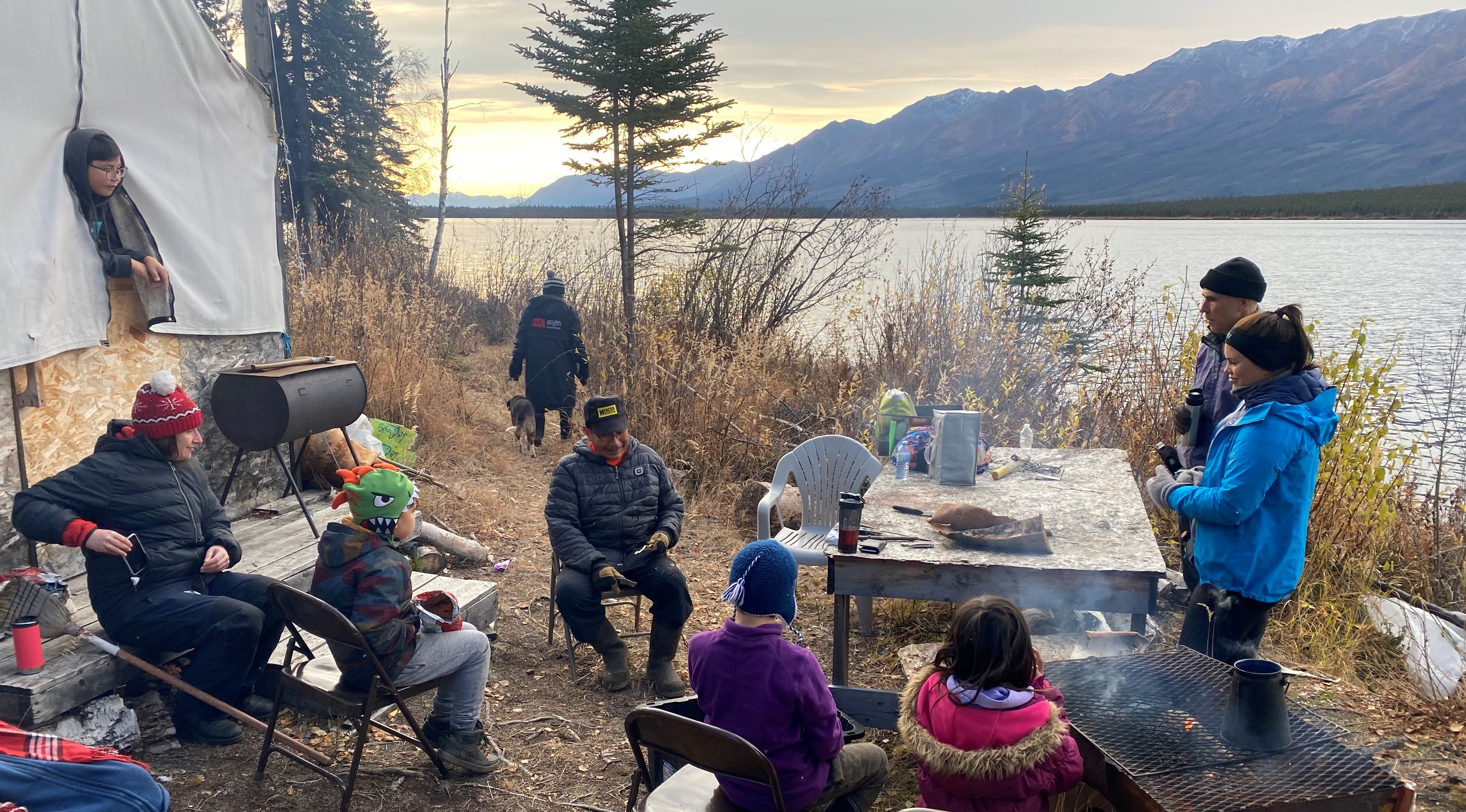
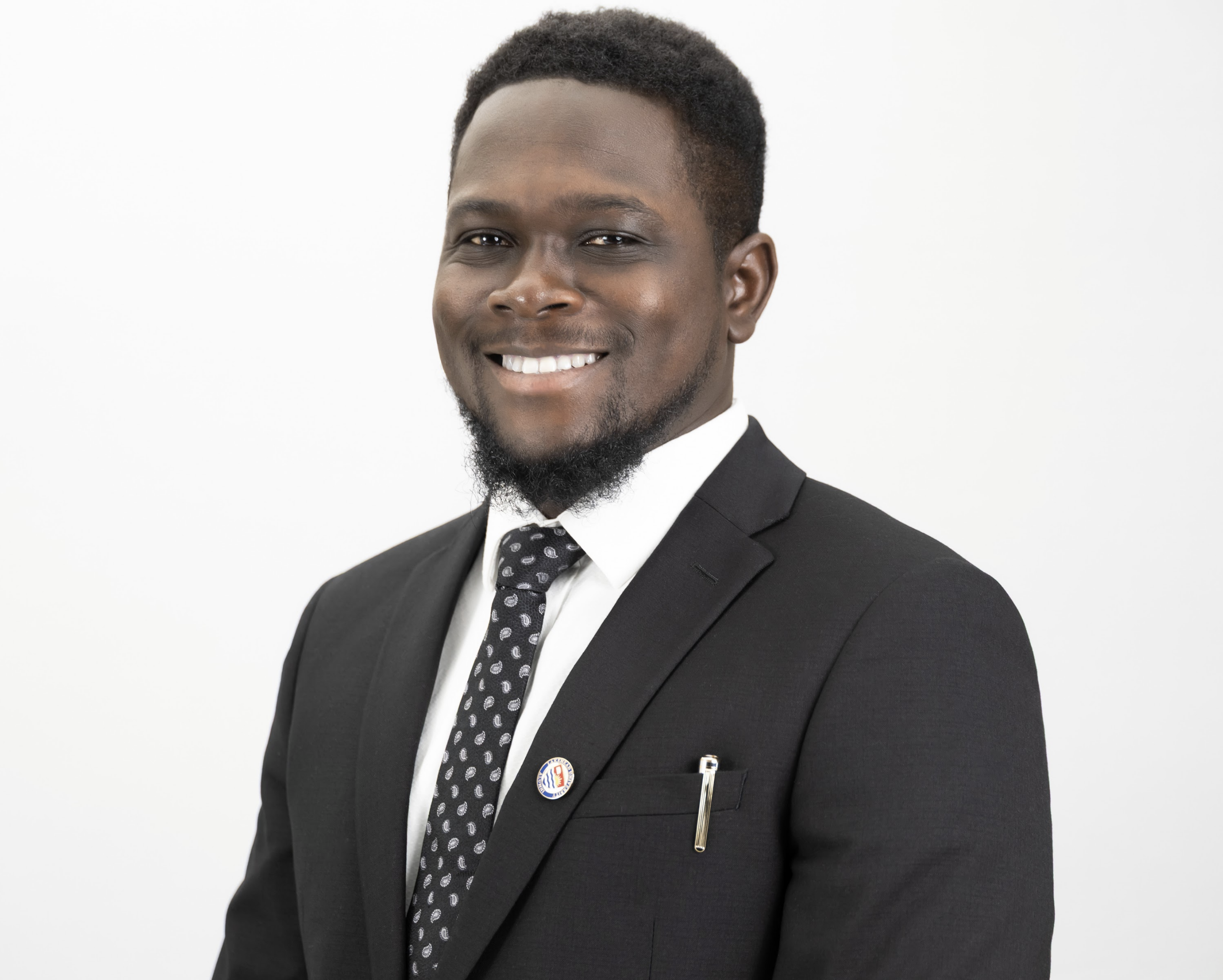
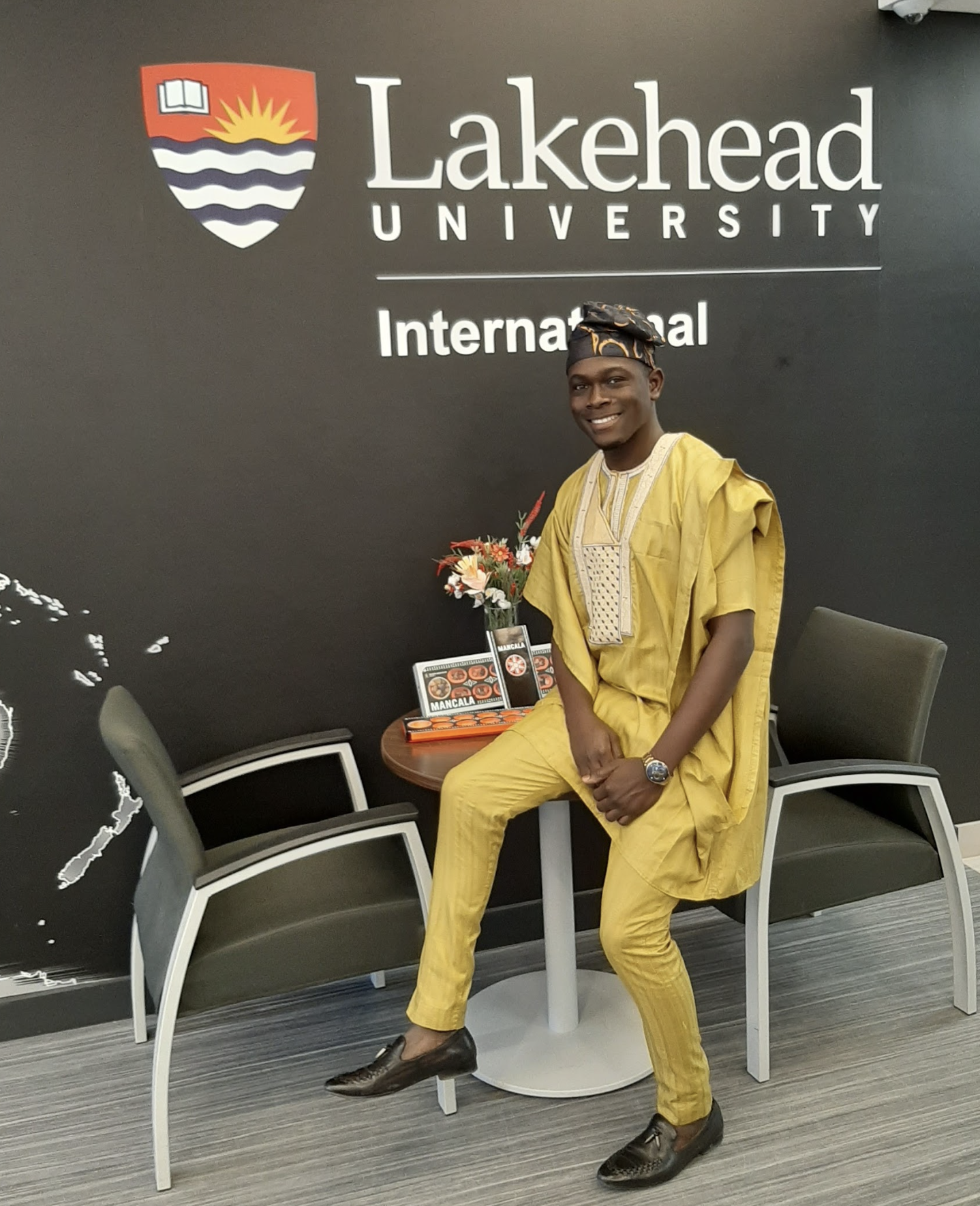 “When you come to Lakehead, you don’t only come to study,” Temitope says. “Lakehead has the resources to help you fit into the community and to inspire you to give back to the community.
“When you come to Lakehead, you don’t only come to study,” Temitope says. “Lakehead has the resources to help you fit into the community and to inspire you to give back to the community.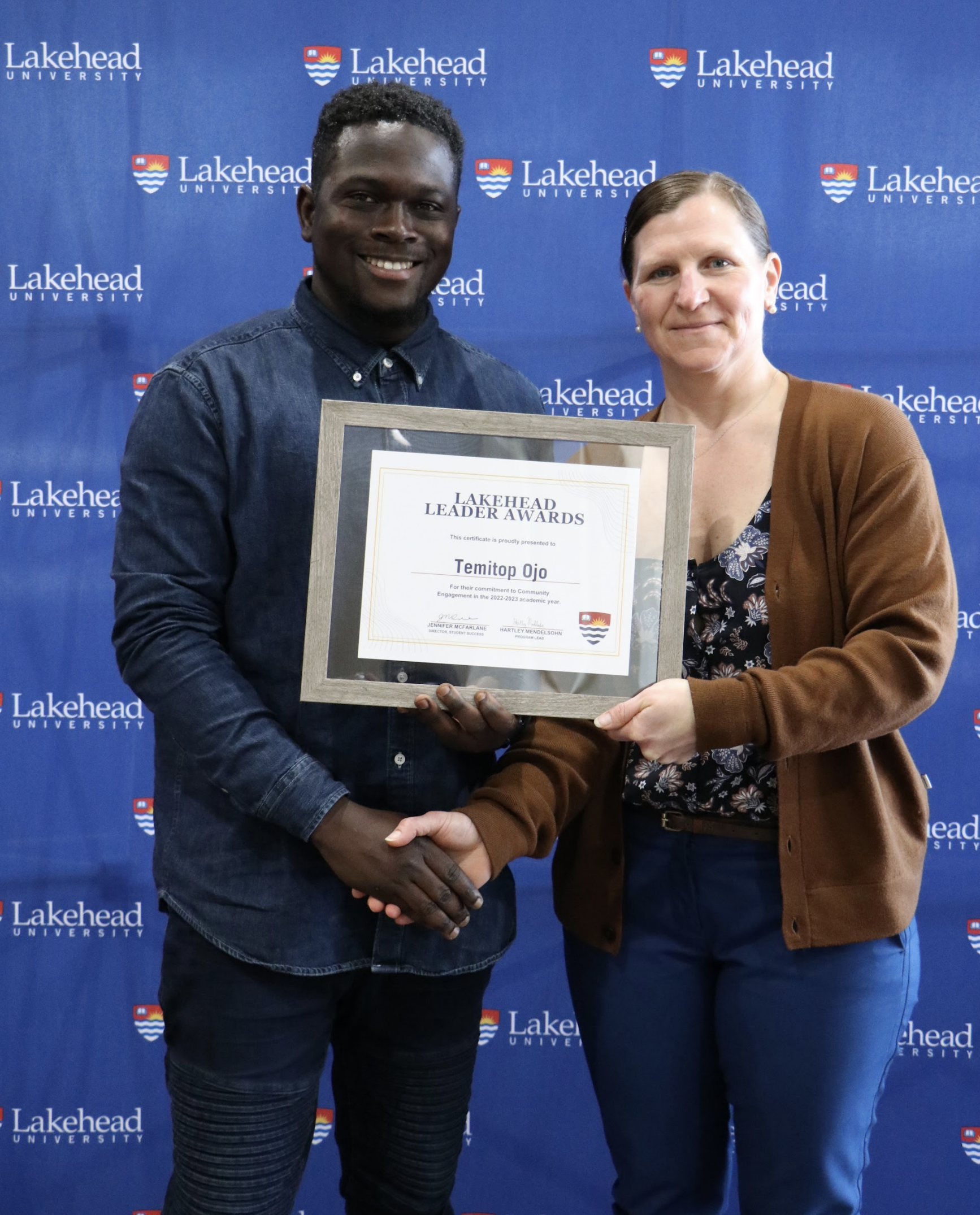
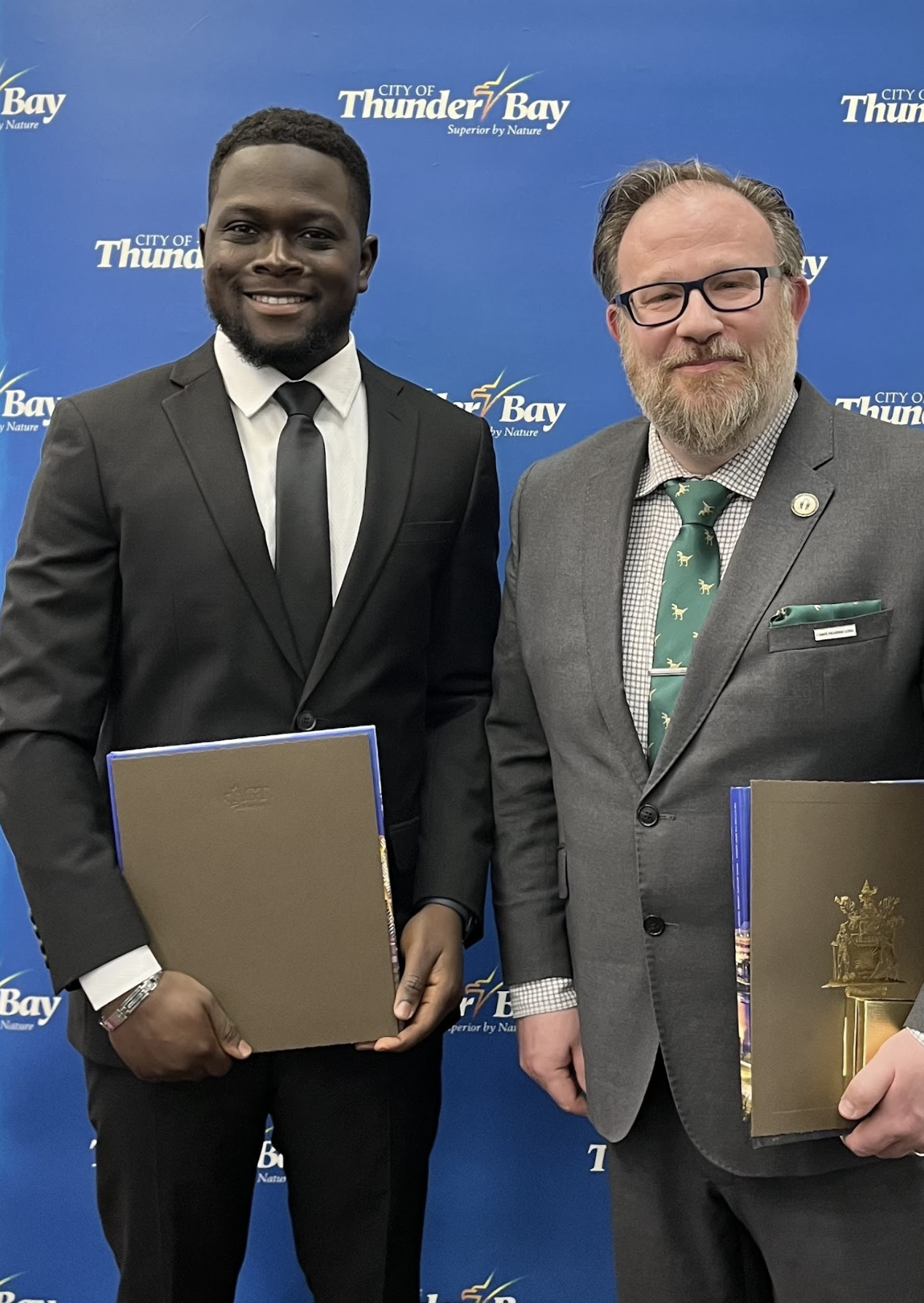
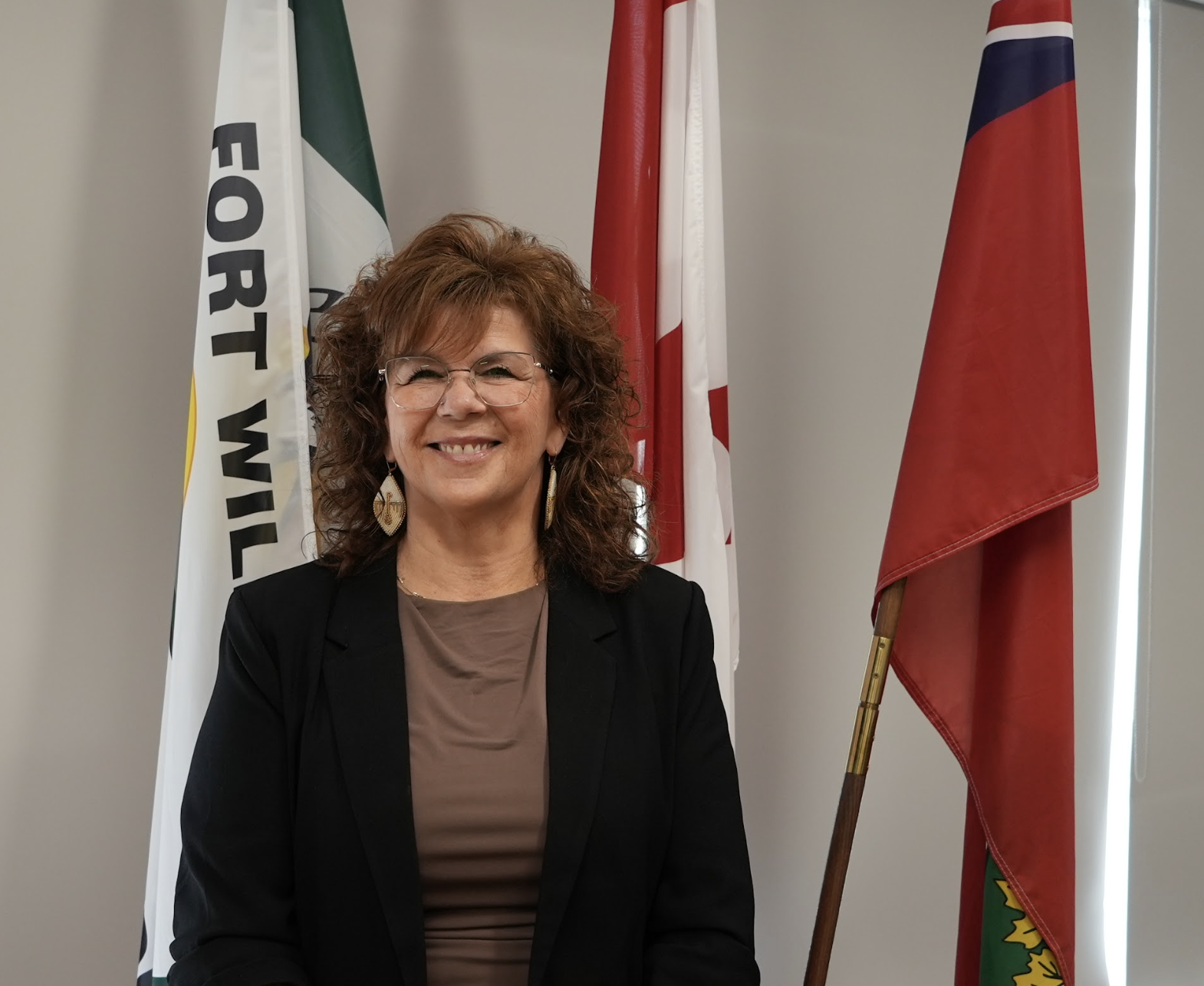
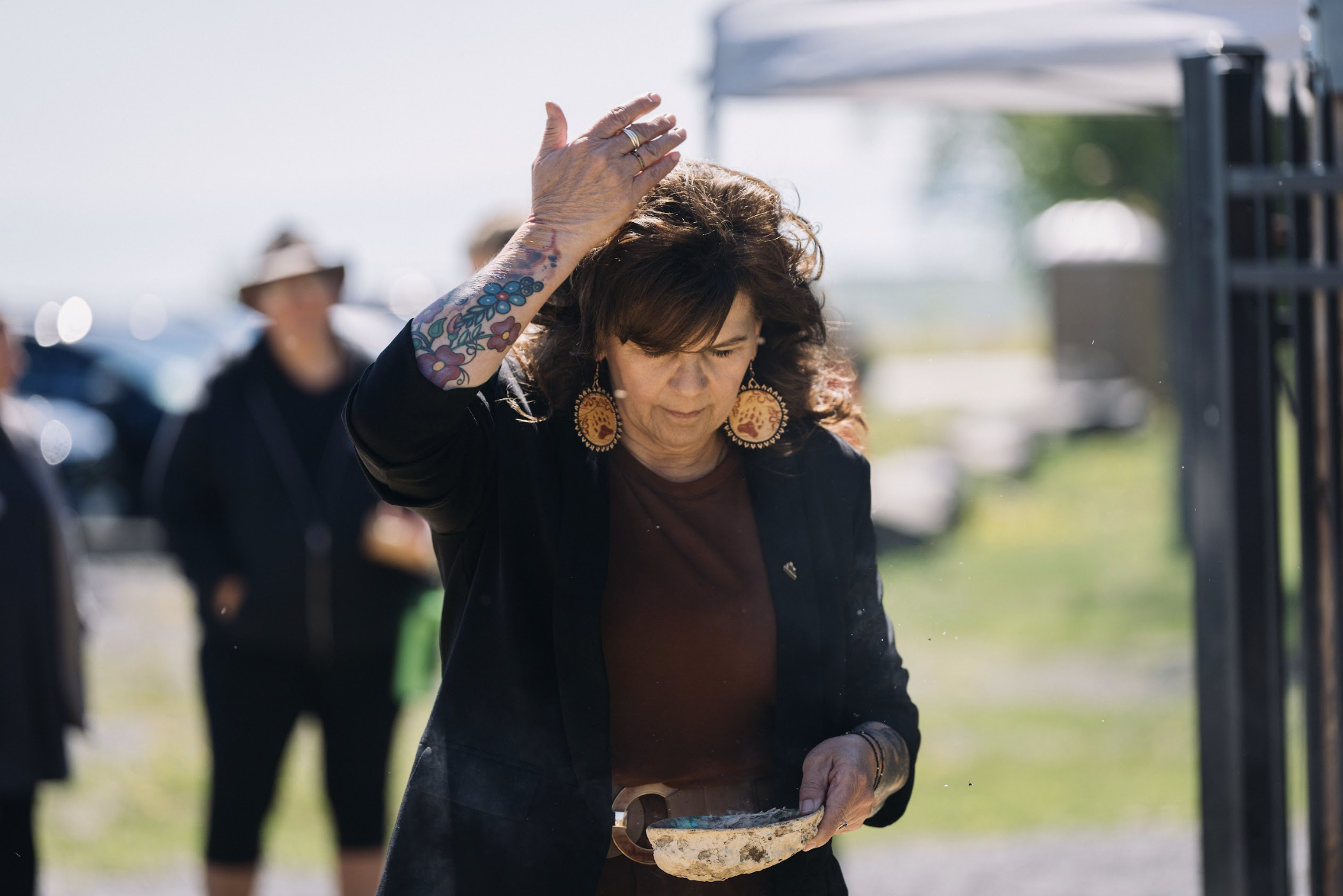

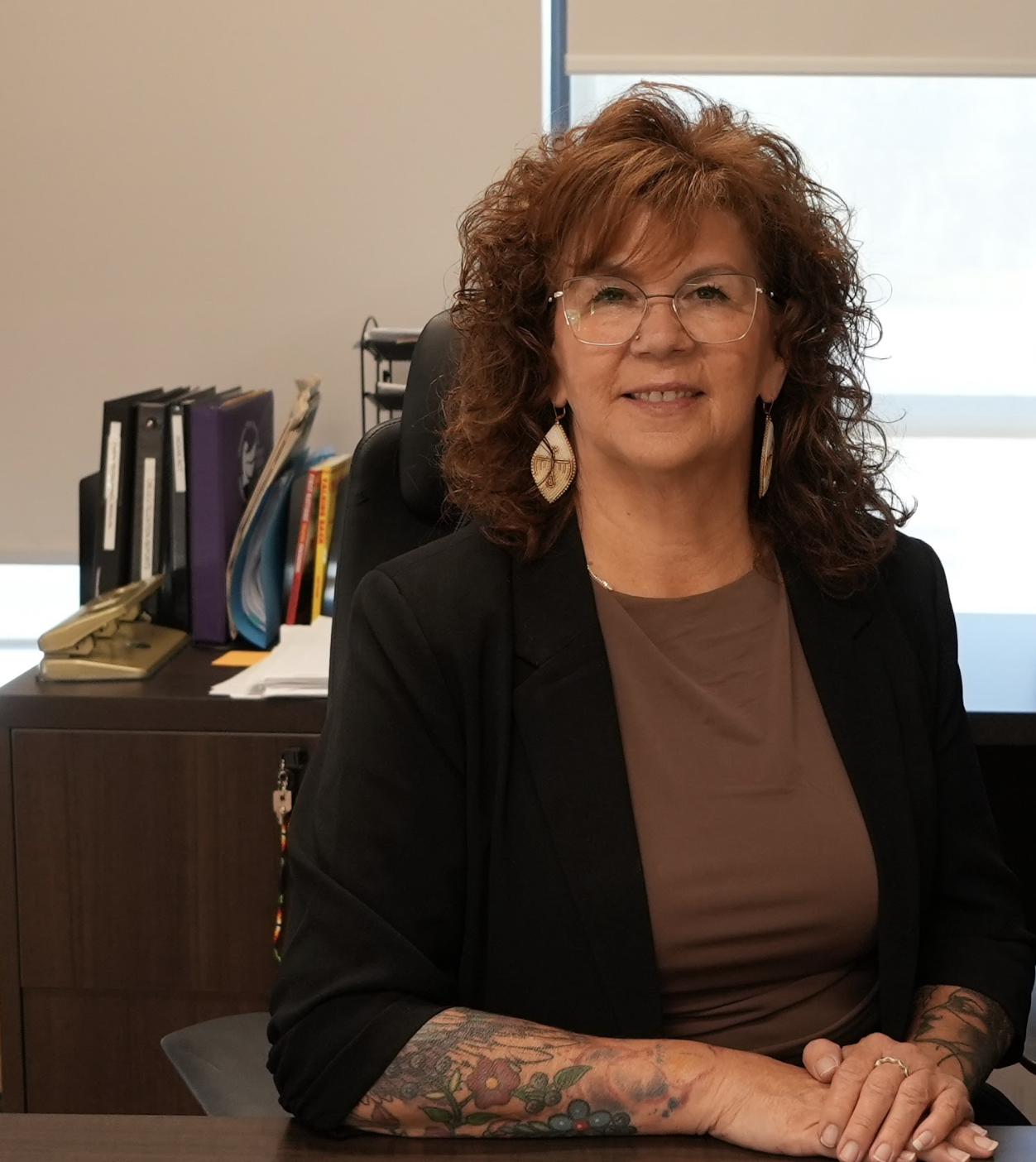 “I’ve had the privilege of representing the Fort William First Nation in the Robinson-Superior annuity court case since 2018, including giving testimony,” Chief Solomon says.
“I’ve had the privilege of representing the Fort William First Nation in the Robinson-Superior annuity court case since 2018, including giving testimony,” Chief Solomon says. 


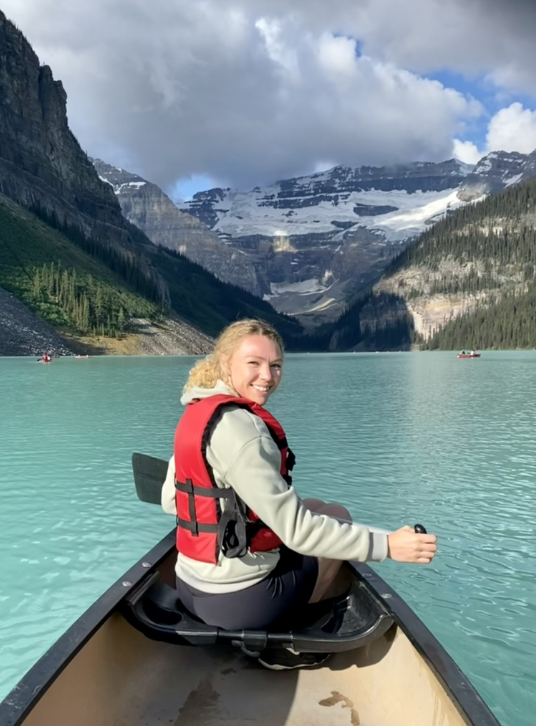



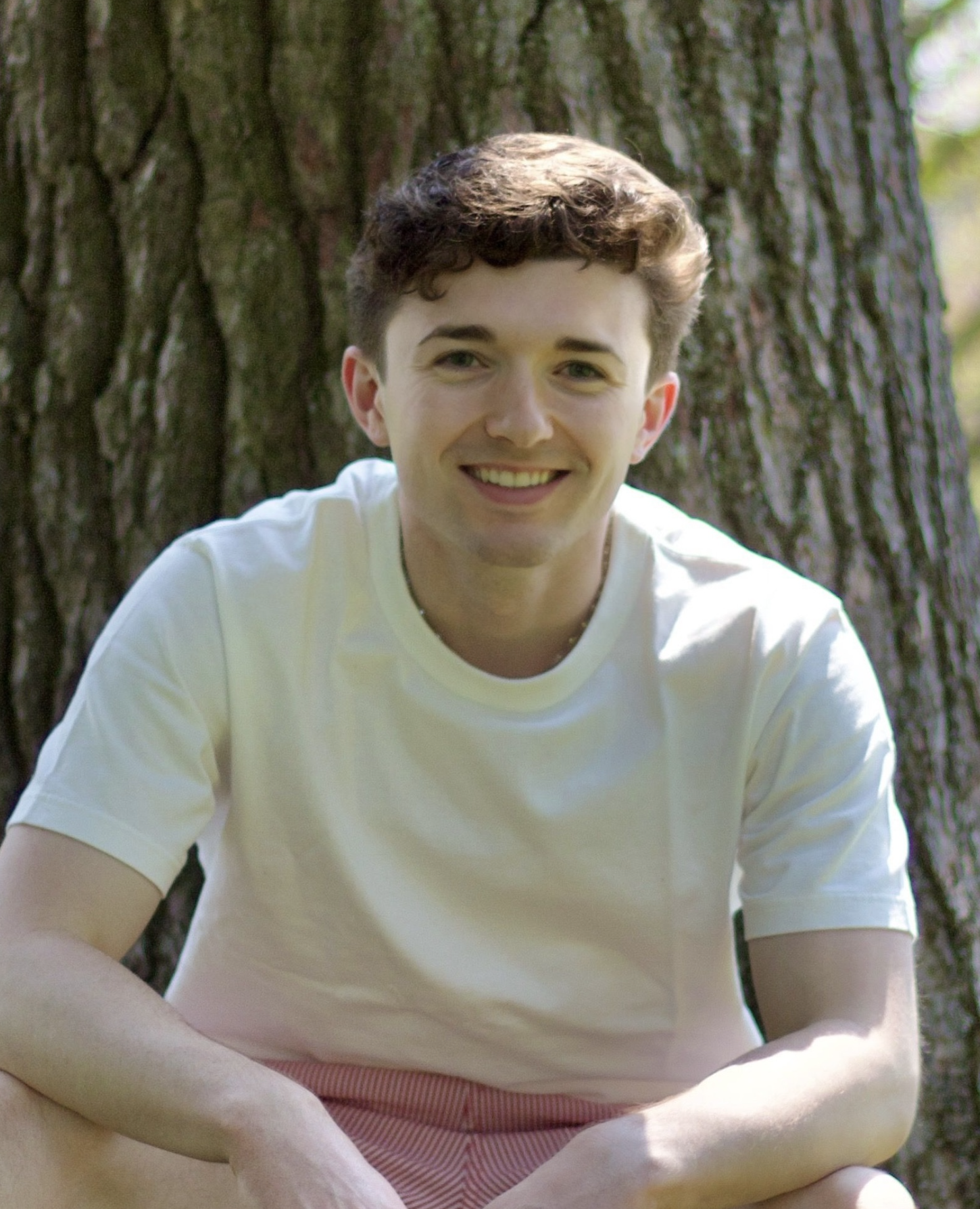
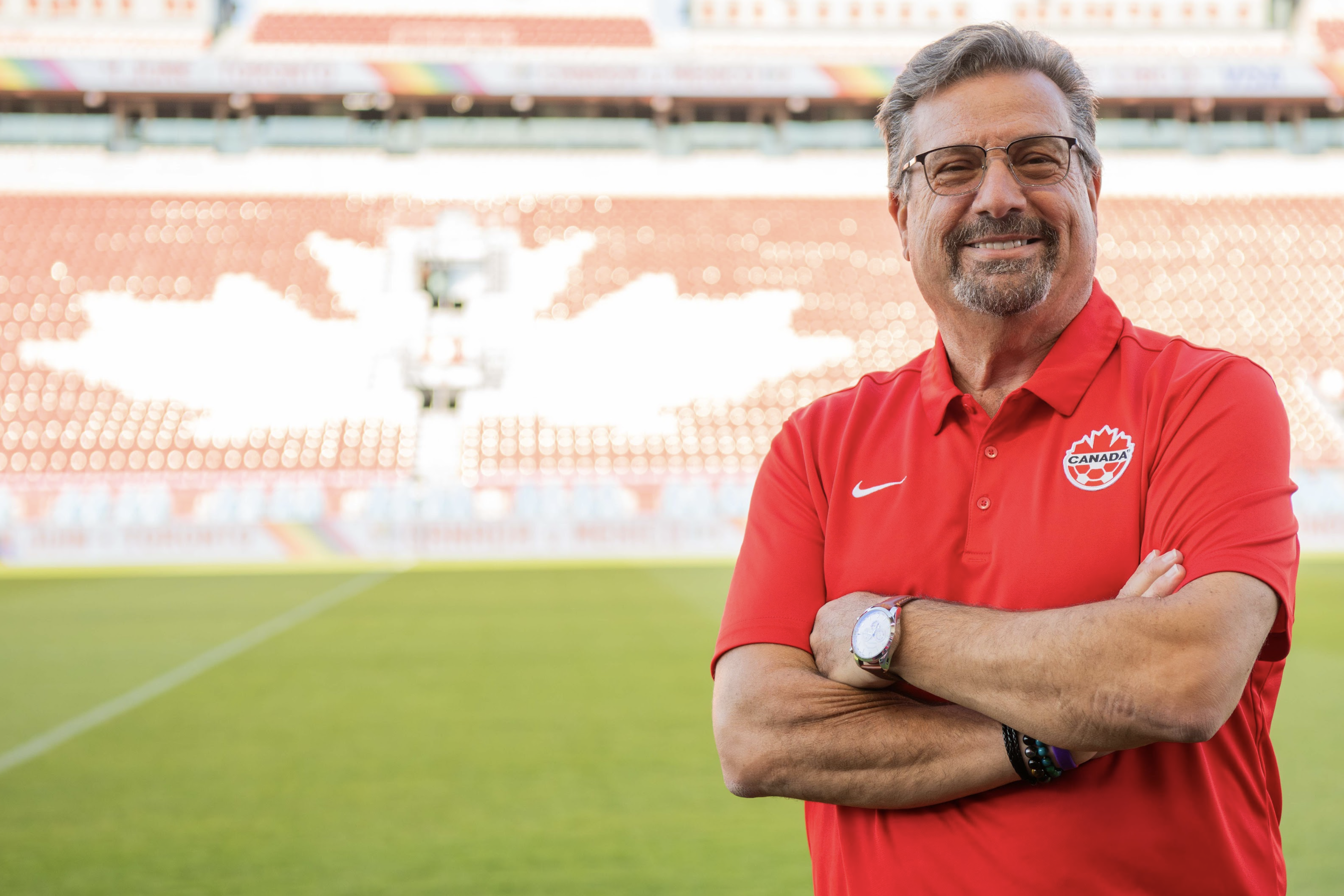
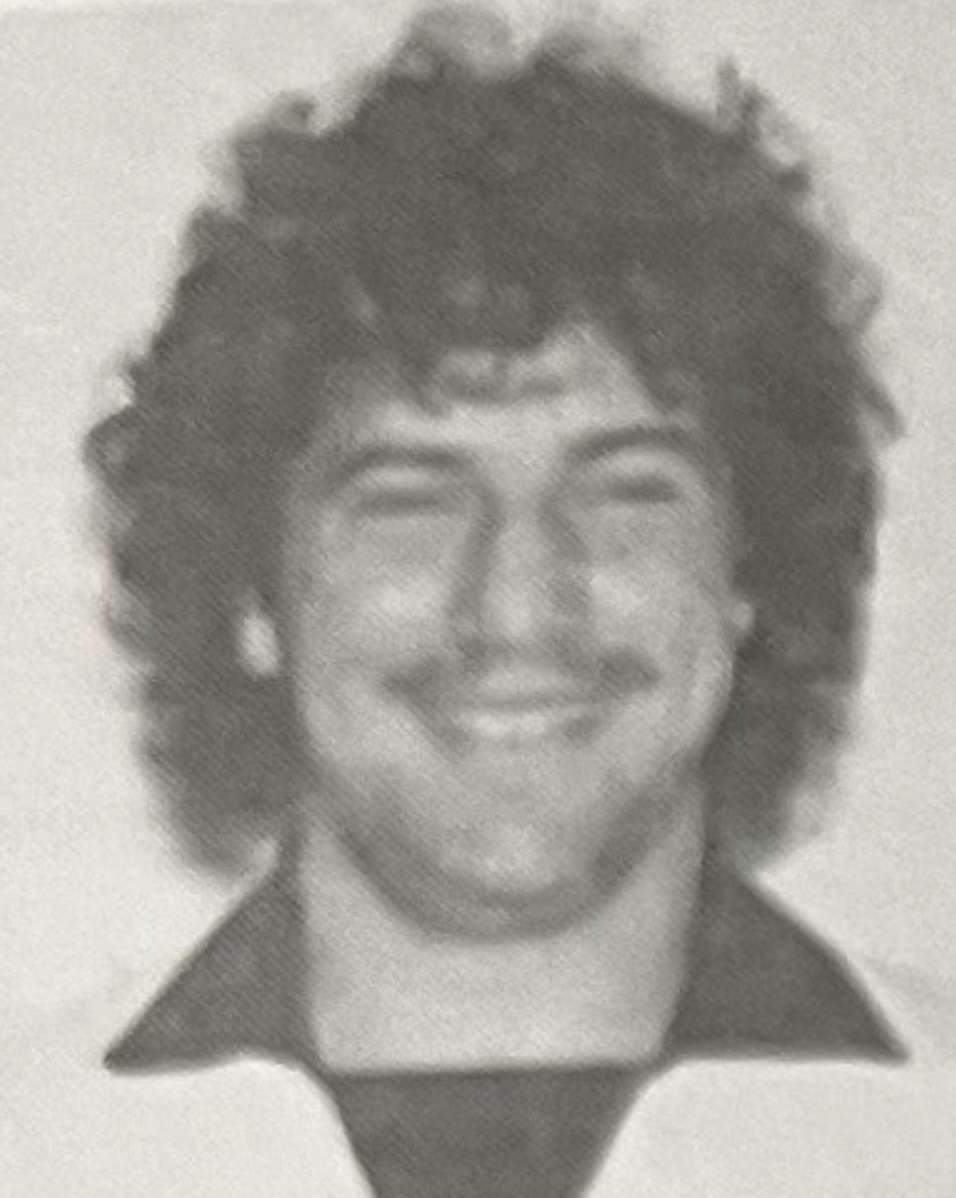
 Pictured left: Soccer Canada President Peter Augruso (centre) at the opening of the Fédération Internationale de Football Association (FIFA) World Cup 26 office in Toronto with FIFA President Gianni Infantino (right) and FIFA Vice-President Victor Montagliani (left), who is also president of the Confederation of North, Central America and Caribbean Association Football (CONCACAF).
Pictured left: Soccer Canada President Peter Augruso (centre) at the opening of the Fédération Internationale de Football Association (FIFA) World Cup 26 office in Toronto with FIFA President Gianni Infantino (right) and FIFA Vice-President Victor Montagliani (left), who is also president of the Confederation of North, Central America and Caribbean Association Football (CONCACAF).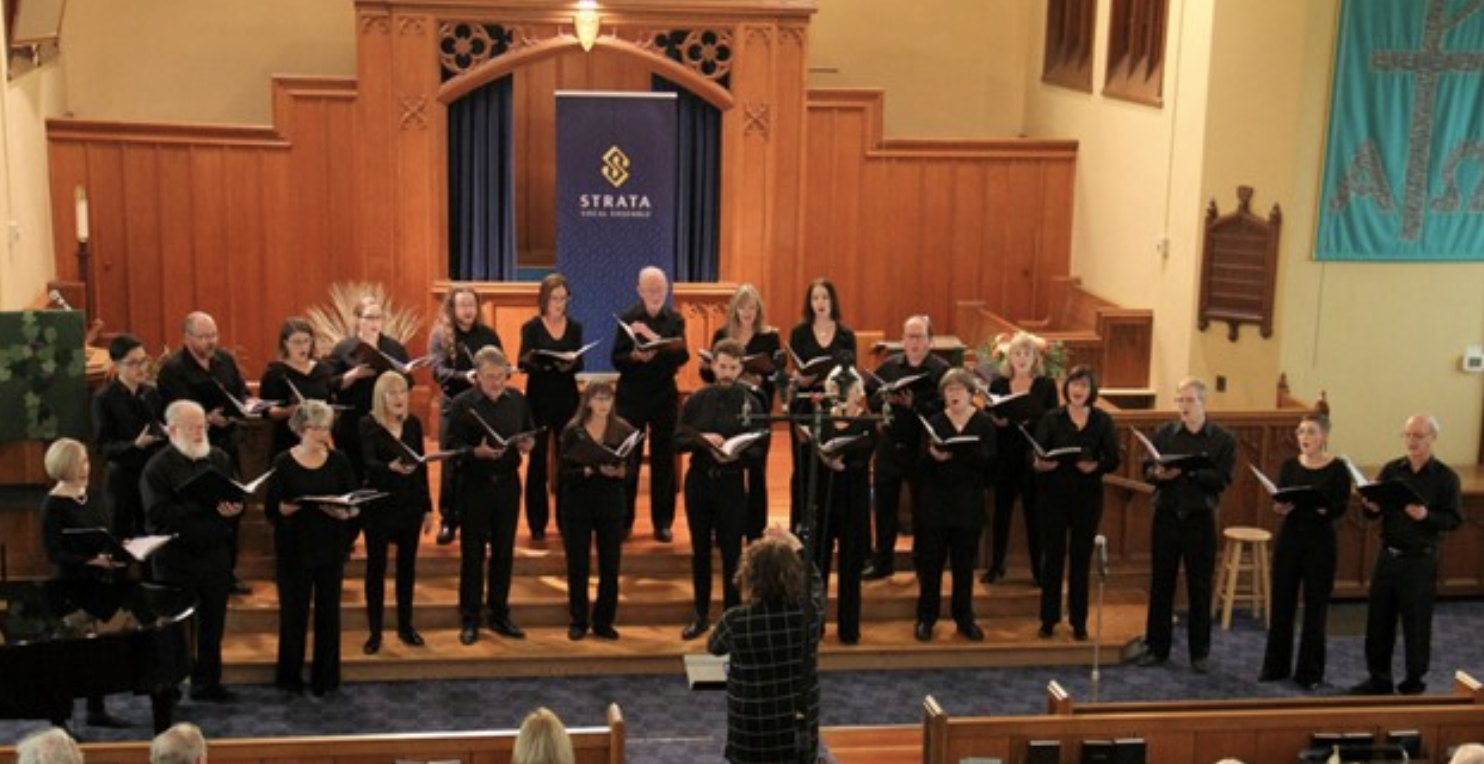
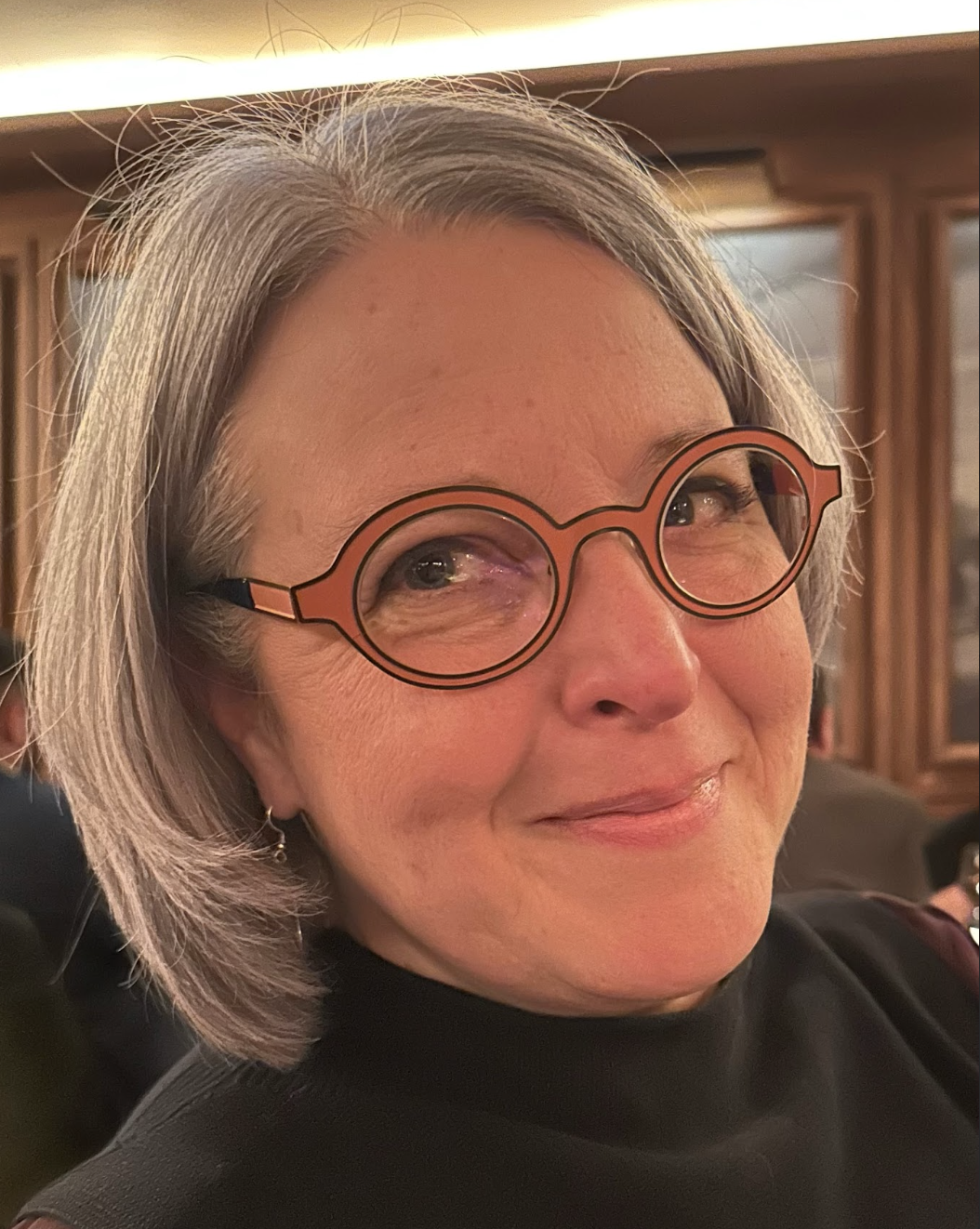 In 1998, when Laurel graduated from Lakehead, the lure of conducting and the lack of teaching jobs prompted her to pursue a music career outside the school system.
In 1998, when Laurel graduated from Lakehead, the lure of conducting and the lack of teaching jobs prompted her to pursue a music career outside the school system.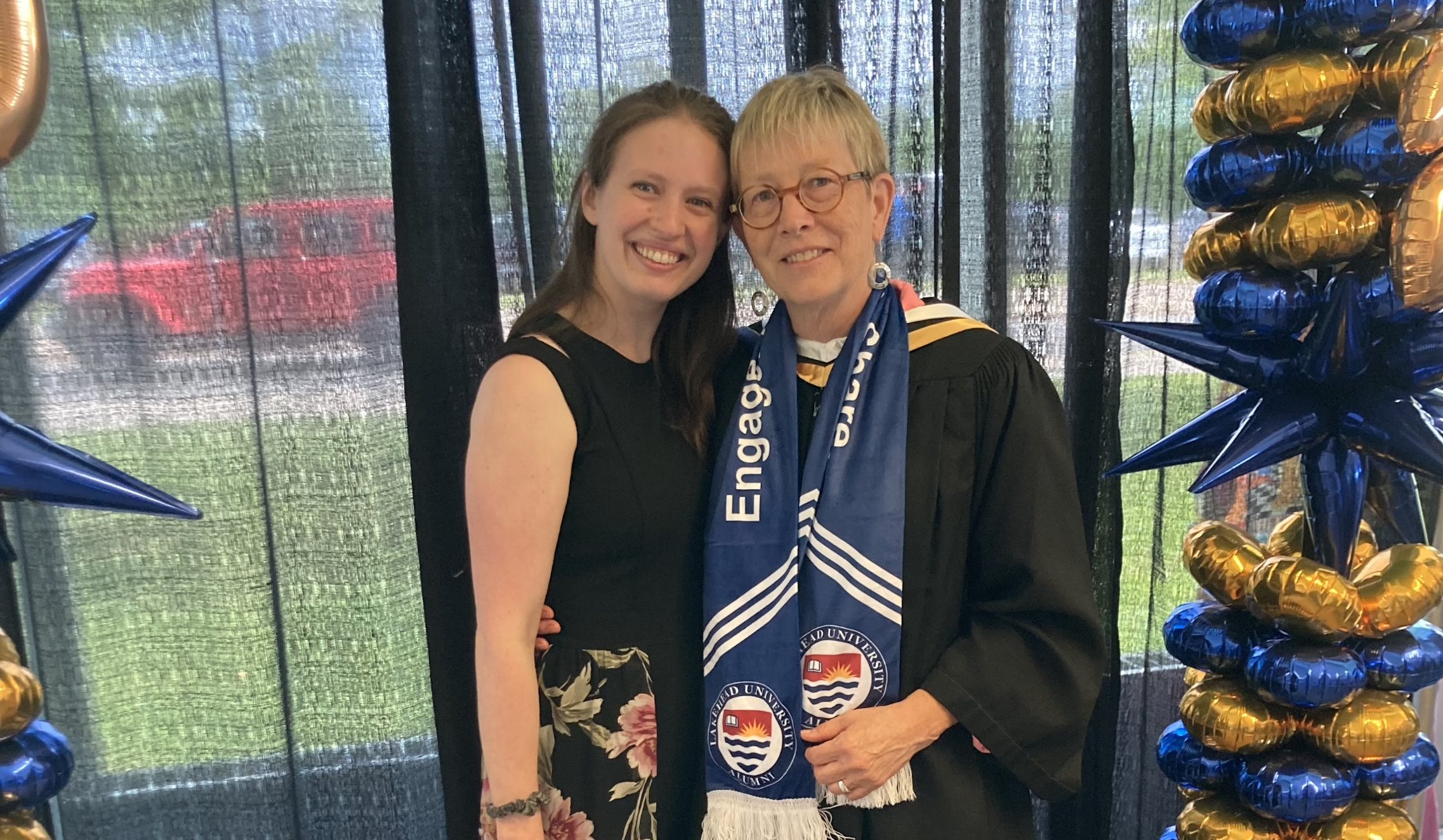 “Lakehead has not only pushed me to be the best I can be academically, but also the best person I can be,” says Holly Gray, who received an Honours Bachelor of Arts and Science in Anthropology in 2024. Above, Holly and her daughter Alexandria celebrate Holly’s graduation.
“Lakehead has not only pushed me to be the best I can be academically, but also the best person I can be,” says Holly Gray, who received an Honours Bachelor of Arts and Science in Anthropology in 2024. Above, Holly and her daughter Alexandria celebrate Holly’s graduation.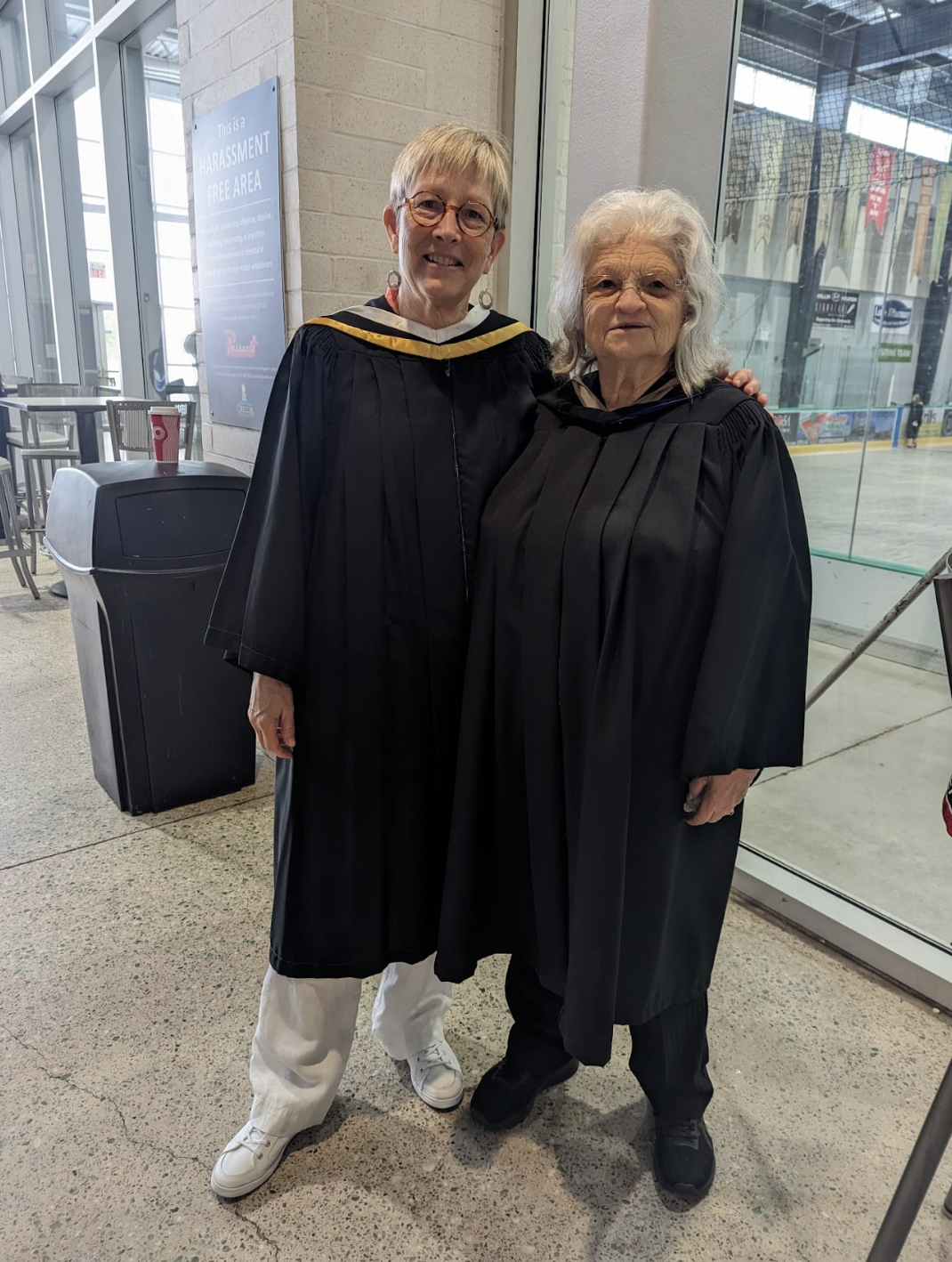 Her fears were eased after she spotted two other seniors in the class. One of them, Ginny Majury, became her study buddy. Soon, Holly was taking more courses, with the goal of earning a degree, and she and Ginny were forming study groups and providing tea and cookies for the students who came. Off-campus experiences were equally important to Holly. “I went on a life-altering dig led by Dr. Scott Hamilton and Dr. Frederico Oliveira at the Indigenous community of Slate Falls north of Sioux Lookout, Ontario. We were looking at the site of the original community of Slate Falls before they were forced to move from their island to the mainland.”
Her fears were eased after she spotted two other seniors in the class. One of them, Ginny Majury, became her study buddy. Soon, Holly was taking more courses, with the goal of earning a degree, and she and Ginny were forming study groups and providing tea and cookies for the students who came. Off-campus experiences were equally important to Holly. “I went on a life-altering dig led by Dr. Scott Hamilton and Dr. Frederico Oliveira at the Indigenous community of Slate Falls north of Sioux Lookout, Ontario. We were looking at the site of the original community of Slate Falls before they were forced to move from their island to the mainland.”
